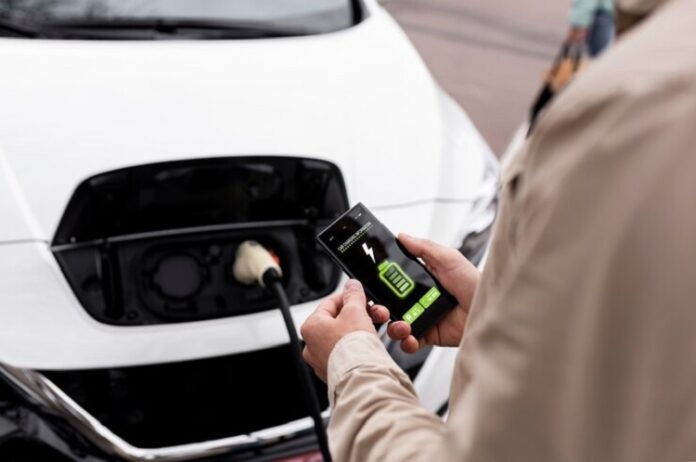You’ve probably heard a lot about the benefits of hybrid cars—they’re more fuel-efficient, eco-friendlier, and can save you money at the gas pump. But what about the flip side? The truth is, hybrid vehicles come with their own set of drawbacks that often get overlooked. So before you rush out and buy a hybrid, let’s take a closer look at the dark side of these supposedly green machines.
While hybrid cars offer some advantages over traditional gas-guzzlers, they also have significant drawbacks that potential buyers should be aware of, including higher upfront and maintenance costs, reduced performance, environmental concerns, limited battery life, and potential reductions in fuel efficiency under certain driving conditions.
Key Takeaways
- Hybrid cars are more expensive to purchase and maintain than conventional vehicles due to their complex technology and battery replacement costs.
- They often sacrifice performance for fuel efficiency, with lower horsepower and less powerful acceleration compared to traditional cars.
- The production and disposal of hybrid car batteries can have negative environmental impacts.
- Battery life and charging limitations can impact fuel efficiency and overall performance over time.
- In certain driving conditions, hybrid cars may not offer significant improvements in fuel consumption or emissions compared to traditional cars.
The Costs of Going Hybrid
- Let’s talk money first. One of the biggest disadvantages of hybrid cars is their higher upfront cost. Sure, you might save some cash at the pump, but the initial purchase price can be thousands of dollars more than a comparable non-hybrid model.
- And it doesn’t stop there. Maintaining a hybrid car can also put a bigger dent in your wallet. Because of their complex technology, routine maintenance and repairs often require specialized knowledge and tools, which translates to higher labor costs.
- Then there’s the battery. The heart of a hybrid system, the battery pack, has a limited lifespan and will eventually need to be replaced—a hefty expense that can set you back several thousand dollars.
Performance Trade-Offs
Alright, so hybrid cars can be pricier. But what about their performance on the road? Well, buckle up, because there are some trade-offs here too.
- For starters, hybrid cars typically have lower horsepower compared to their gas-powered counterparts. That means less oomph when you hit the pedal, and a driving experience that might feel a little…well, underwhelming.
- Acceleration is another area where hybrids can fall short. Due to their electric motors and battery packs, they often lack the instant torque and powerful take-off that gasoline engines offer.
- And let’s not forget about the weight factor. All those extra batteries and electric components add significant heft, which can further impact acceleration and overall performance.
So if you’re a driving enthusiast who values raw power and handling, a hybrid might not be the best choice for you.
Environmental Concerns: Not as Green as You Think?
One of the biggest selling points of hybrid cars is their eco-friendliness. But wait, before you pat yourself on the back for going green, there are a few environmental considerations to keep in mind.
- Let’s start with battery disposal. Those high-voltage battery packs in hybrid cars contain toxic materials that can be harmful to the environment if not recycled or disposed of properly. And the recycling process itself can be complicated and energy-intensive.
- Speaking of energy, the production of hybrid cars often involves more resources and emissions than traditional vehicles. From mining the raw materials for batteries to manufacturing the complex components, the carbon footprint of hybrid cars can be significant.
- And let’s not forget about the ongoing environmental impact of charging and maintaining those battery packs. Depending on the energy sources used, charging a hybrid’s batteries can contribute to greenhouse gas emissions and further diminish their eco-friendly claims.
So while hybrid cars may be more fuel-efficient on the road, their overall environmental impact is a complex issue that deserves closer examination.
Battery Life and Charging Challenges
Ah, the battery—the lifeblood of any hybrid car. But as with any rechargeable device, batteries have a limited lifespan, and hybrid car batteries are no exception.
- Over time, the battery’s capacity to hold a charge will diminish, leading to reduced fuel efficiency and overall performance. And when the battery finally kicks the bucket? Be prepared to shell out some serious cash for a replacement.
- But even before the battery dies, you’ll need to deal with the inconvenience of charging it. Unlike fully electric vehicles, hybrid cars can’t rely solely on plug-in charging, which means you’ll need to factor in the time and availability of charging stations into your driving routine.
- And let’s not forget about range anxiety. While hybrid cars can switch to gasoline power when the battery runs low, their all-electric range is still limited, which can be a real hassle on longer trips or in areas with sparse charging infrastructure.
So if you’re someone who values low-maintenance and hassle-free driving, the battery life and charging considerations of a hybrid car might not be worth the trade-off.
Fuel Efficiency and Emissions: Not Always a Clear Winner
One of the primary selling points of hybrid cars is their improved fuel efficiency and lower emissions compared to traditional gasoline-powered vehicles. However, the reality is a bit more nuanced.
- First, let’s talk fuel economy. While hybrid cars generally excel in stop-and-go city driving, where they can make the most of their electric motors and regenerative braking, their fuel efficiency advantage can diminish on the highway or in high-speed driving conditions.
- And when it comes to emissions, hybrid cars aren’t always as clean as you might think. In certain driving situations, such as hard acceleration or high speeds, their gasoline engines can produce emissions comparable to or even higher than those of conventional cars.
- It’s also worth noting that the fuel efficiency and emissions benefits of hybrid cars can vary significantly depending on the specific model, driving conditions, and even the driver’s behavior behind the wheel.
So while hybrid cars may offer improvements in fuel economy and emissions in some scenarios, it’s important to understand their limitations and not assume they’re always the most eco-friendly choice.
Maintenance and Repair Headaches
We’ve already touched on the higher upfront costs of hybrid cars, but let’s dive deeper into the ongoing maintenance and repair challenges they can present.
- First up, specialized knowledge and tools. Because hybrid cars combine traditional gasoline engines with electric motors and battery packs, they require mechanics and technicians with specific training and equipment to service them properly. This can make finding a qualified repair shop more difficult and expensive.
- And then there are the repair costs themselves. With their complex technology and specialized components, hybrid car repairs can be significantly more expensive than those for conventional vehicles. A simple component failure or software issue can quickly add up to a hefty bill.
- Let’s not forget about the battery replacement we mentioned earlier. Depending on the make and model, replacing a hybrid car’s battery pack can cost anywhere from a few thousand to over ten thousand dollars—a major expense that can seriously impact the overall cost of ownership.
So if you’re someone who values low-maintenance and hassle-free car ownership, a hybrid might not be the best choice for you.
Conclusion
As we’ve explored, hybrid cars come with their fair share of disadvantages that are often overlooked in favor of their eco-friendly reputation and potential fuel savings.
From higher upfront and maintenance costs to reduced performance, environmental concerns, battery life limitations, and potential reductions in fuel efficiency under certain driving conditions, there are plenty of factors to consider before making the switch to a hybrid vehicle.
So before you join the hybrid hype, take a moment to consider the dark side. Knowledge is power, and being an informed consumer can help you make the best choice for your driving needs and budget.








